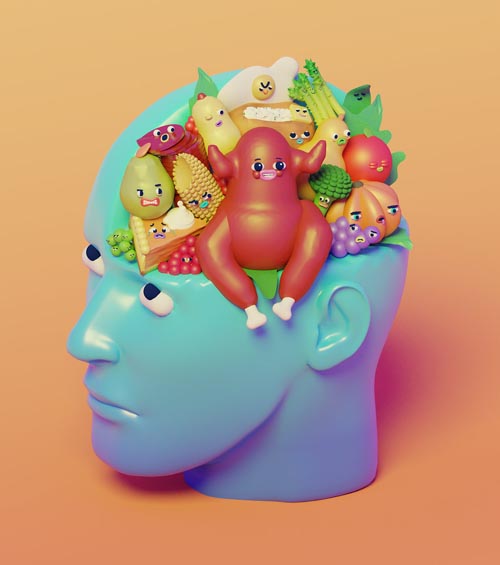- 阅读
- 阅读
- 技巧
- 百科
- 试题
- 文化
- 技能
Why Gratitude Is Wasted on Thanksgiving
我们需要感恩,但不一定在感恩节
As a psychologist, I’ve spent the past 15 years studying how gratitude shapes people’s lives. Research, including my own, has shown that feeling grateful has positive effects on our behavior — making us more honest, increasing our self-control, enhancing our productivity at work and our relationships at home.
作为一名心理学家,我花了15年时间研究感恩如何影响人们的生活。包括我自己在内的研究表明,感恩对我们的行为有积极影响——让我们更诚实,增加我们的自控能力,改善我们的工作效率和家庭关系。
Given that, you might expect me to think that Thanksgiving is one of the most important days of the year. After all, if there’s a day on which the benefits of gratitude are maximized, surely it’s the national holiday set aside for the purpose of expressing that emotion.
因此,你可能会觉得我认为感恩节是一年中最重要的日子之一。毕竟,如果某一天感恩的好处被最大化,那这一天一定会是为了表达这种感情而专门设置的国家节日。

But truth be told, gratitude is wasted on Thanksgiving. Don’t get me wrong: I love the rhythms and rituals of the day as much as anyone. It’s just that the very things that make Thanksgiving so wonderful — the presence of family and friends, the time off from work, indulging in that extra serving of turkey — also make gratitude unnecessary.
但说实话,感恩在感恩节实属浪费。不要误解我的意思:我和大家一样喜欢这一天的节奏和仪式传统。只不过正是这些让感恩节如此美妙的事情——亲朋的陪伴、不用上班的时间、尽情享用特别的火鸡大餐——也让感恩变得没有必要。
Consider that one of gratitude’s central purposes is to help us form strong bonds with other people. Research by the psychologist Sara Algoe has shown that when we feel grateful for other people’s thoughtfulness, we consider that they might be worth getting to know a little better. Gratitude pushes us to take the first steps in forming relationships with new people. And once we know people better, continued feelings of gratitude strengthen our ties to them. Feeling grateful to one person for a favor also makes us more likely to “pay forward” favors to others we don’t know — a phenomenon identified by the psychologist Monica Bartlett — which, in turn, can lead them to want to get to know us.
感恩的核心目的之一,就是帮助我们与他人建立牢固的联系。心理学家莎拉·阿尔戈(Sara Algoe)的研究表明,当我们对他人的体贴心存感激时,就会认为他们或许值得进一步了解。感恩促使我们迈出与陌生人建立关系的第一步。一旦我们更了解他人,持续的感激之情会加强我们与他们的联系。对他人的帮助心存感激,也会让我们更愿意向不认识的人提供帮助——心理学家莫妮卡·巴特利特(Monica Bartlett)发现了这种现象——这会让别人也想要来了解我们。
But as we sit around the Thanksgiving table with family and friends, we are not typically looking to seek out other people and form new relationships. On that day, we are already among those we hold dear.
但当我们与亲朋围坐在感恩节餐桌旁时,通常不会刻意寻找其他人并建立新关系。在这一天,我们已经和自己所珍视的人在一起了。
To be clear, I’m not saying that taking time to reflect on and show appreciation for the good in life isn’t worthwhile. It’s surely a noble act. But from a scientific perspective — where emotions exist to nudge our decisions and behaviors toward certain ends — the benefits that gratitude offers tend to be rendered irrelevant on the day it’s most expressed.
需要明确的是,我并不是说花时间反省、表达对生活中美好事物的欣赏是不值得的。这当然是一种高尚的行为。但从科学的角度看——情绪的存在会推动我们决定和行为朝着特定方向发展——感恩带来的好处,往往在表达最多的那一天变得无关紧要。
Here’s another example. Work from my lab has shown that feeling grateful helps keep us honest. When my colleagues and I asked people to report whether a coin they flipped in private came up heads or tails (heads meant they’d get more money), those who had been made to feel grateful (by counting their blessings) cheated at half the rate of others. (We knew who cheated because the coin was rigged to come up tails.)
这里还有另一个例子。我的实验室研究表明,心怀感激有助于保持诚实。当我和同事们让人们报告他们私下掷出的硬币是正面还是反面时(正面意味着他们会得到更多钱),那些(通过历数自己的幸福)变得心怀感激的人作弊率只有其他人的一半。(我们知道谁作弊了,因为硬币被设计成反面朝上。)
Gratitude also makes us more generous: When people in our experiments were given an opportunity to share money with strangers, we found that those feeling gratitude shared 12 percent more on average.
感恩也会让我们更加慷慨:在我们的实验中,当人们有机会与陌生人分享金钱时,我们发现那些感恩的人平均会多分享12%。
Yet on Thanksgiving, cheating and stinginess aren’t sins we’re usually tempted to commit. (Unless you count my taking too big a serving of Aunt Donna’s famous stuffing.)
然而在感恩节,欺骗和吝啬通常并不是我们会犯下的罪过。(除非你算上我吃了太多唐纳阿姨出名的馅料。)
Self-control is also something gratitude enhances. Research by me and my colleagues found that people feeling grateful made less impulsive financial choices — they were more willing to be patient for future investment gains than to take smaller amounts of money in hand. This self-control also applies to eating: As the psychologist Sonja Lyubomirsky and her colleagues showed, people feeling grateful are better able to resist consuming unhealthy foods.
自我控制能力也可以因感恩提高。我和同事的研究发现,感恩的人更少做冲动的财务选择——他们更愿对未来的投资收益保持耐心,而不是贪图眼前小利。这种自控也适用于饮食:正如心理学家索尼娅·柳博米尔斯基(Sonja Lyubomirsky)和她同事的发现所表明的,感恩的人更能抵制不健康的食物。
But of course on Thanksgiving, self-control isn’t the point. No one needs a reminder to put more money in her retirement account; the banks are closed. And if I can’t be a bit gluttonous with Aunt Amy’s pumpkin pie on Thanksgiving, when can I?
但在感恩节,自我控制当然不是重点。没人需要借此提醒自己得在退休账户里多存钱;银行都关门了。况且如果我不能趁着感恩节多吃一点艾米阿姨的南瓜派,那要等什么时候呢?
Gratitude also drives us to be more productive. The psychologists Adam Grant and Francesca Gino found that when bosses expressed gratitude for their workers’ efforts in a fund-raising department, the outreach efforts of those workers suddenly jumped by 33 percent. More frequent feelings of gratitude in the office are also tied to greater feelings of work satisfaction and well-being.
感恩还会让我们更有效率。心理学家亚当·格兰特(Adam Grant)和弗朗切丝卡·吉诺(Francesca Gino)发现,当老板们对融资部门员工的辛勤表达感激时,这些员工的主动努力会突然增加33%。在办公室多表达感激,同样与更高的工作满意度和幸福感息息相关。
Again, this is all great. But unless you’re in the hospitality industry, you’re probably not working on Thanksgiving.
需要再说一遍,一切感恩都很棒。但除非是服务行业,否则你可能不会在感恩节工作。
There’s one other benefit of gratitude I want to point out: It reduces materialism. As work by the psychologist Nathaniel Lambert has demonstrated, feeling more gratitude not only increases people’s satisfaction with their lives; it also lowers their cravings for buying stuff. This finding jibes with research by the psychologist Thomas Gilovich that shows that people tend to be more grateful for time spent with others than for gifts of big-ticket items.
我想指出感恩的另一个好处:它可以减少物质主义。心理学家纳撒尼尔·兰伯特(Nathaniel Lambert)的研究表明,心存更多感激不仅会提高人们对生活的满意度,也会降低他们购买东西的欲望。这一发现与心理学家托马斯·基洛维奇(Thomas Gilovich)的研究相符,该研究表明,比起昂贵的礼物,人们往往对与他人相处的时间更有感激之情。
But on Thanksgiving, avoiding impulse buys isn’t usually a big concern. (The following day, Black Friday, is another story.)
但在感恩节,避免购物冲动通常不是个大问题。(但第二天的黑色星期五是另外一回事。)
So as you and your loved ones gather for Thanksgiving this year, consider that the joys of the day — the delicious food, the family and friends, the sense of peace — come relatively easily. We’re supposed to gather, support one another and relax on that fourth Thursday of November.
所以,当你和你爱的人在今年感恩节相聚时,会发现这一天的欢乐——美味的食物、家人和朋友、平和的心境——其实来得相对容易。我们就应该在11月的第四个星期四聚在一起,彼此慰藉,好好放松。
Yet on the other 364 days of the year — the ones when you might feel lonely, stressed at work, tempted to dishonesty or stinginess — pausing to cultivate a sense of gratitude can make a big difference. Gratitude may not be needed on Thanksgiving, but giving thanks on other days can help ensure that in the future, you’ll have many things to be grateful for.
参与评论